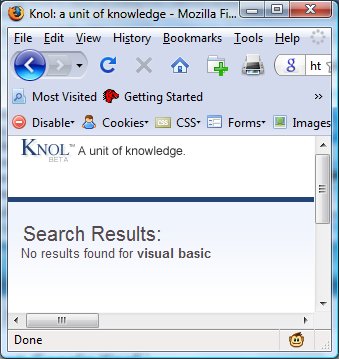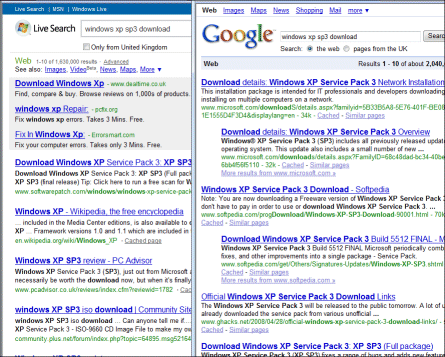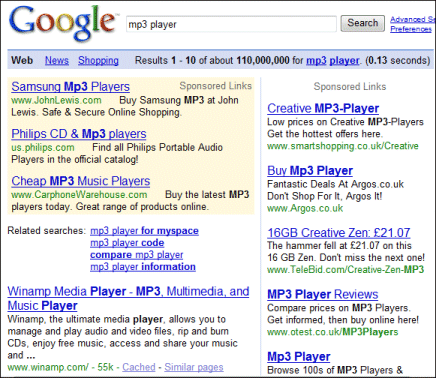I get frequent emails asking to place advertising on itwriting.com. My reply is that I’m happy to take appropriate ads, provided that they are clearly marked as such, non-intrusive, and that links are either inserted by script or tagged “nofollow” in accordance with Google’s guidelines. Usually I don’t hear back from the advertiser.
The problem is that these advertisers are not primarily interested in having readers of this site click their ad or see their brand. Their real concern is search engine optimization – improving the rank of a web site in Google searches by adding to the number of incoming links. Counting incoming links to determine PageRank was Google’s original secret sauce, by which it determines which pages are of the highest quality, though it is probably less important now precisely because the principle is so well known. Advertising like this is often called paid links.
Although it upsets Google, there is nothing illicit about accepting paid links. Advertising is the commercial engine that drives much of the web. It is risky for the host site, since Google might downgrade its ranking because of the paid links. In other words, the advertiser is proposing a trade – buying more PageRank for its own sites, at the expense of some of yours.
The other risk, which is the reality that Google’s algorithms are attempting to simulate, is that a site filled with spammy links is less attractive to readers and therefore likely to become less popular. After a while the advertising will dry up too.
Balancing the demands of advertisers and editorial is nothing new. My main complaint about these advertising offers is that they are not transparent about their intentions.
Even so, the whole SEO/Paid links/Google dance is a horrible mess. One of the problems is that the Web has de-facto authority. People search the web for information, and believe the top-ranking results as the answer to their question. Another real-world issue is that countless businesses now depend on Google for their success and survival. I often hear from organizations which are desperate to improve their search ranking and vulnerable to SEO consultants whose services are often not good value.
All this makes the nofollow idea good, in that it is tackling the right problem; but unfortunately it is not working. We are seeing the nofollow tag frequently applied to links that are “good”, and frequently not applied to links that are “bad”. For example, links in comments to a WordPress blog are automatically tagged nofollow; yet some of the best-informed advice on the web is found in comments to WordPress blogs. Links in Wikipedia are tagged nofollow; yet an external link that survives in an important Wikipedia article is a high recommendation of quality.
At the same time, both the spammers and the SEO folk are having few problems placing paid links sans nofollow all over the web.
It would not surprise me if the secret search ranking algorithms used by Google and others actually accord more significance to links tagged nofollow than is acknowledged. It would actually make sense for the search engines to try and distinguish between good and bad links regardless of nofollow. In other words, the nofollow tag has become almost pointless. That said, I have no idea whether, if Google declared the tag obsolete, the net spamminess of the web would improve or deteriorate.
I don’t know how to fix the problem; though I suspect that Google as the Web’s current gatekeeper is the entity with most power to improve it. Another thing that would help: more focus on content and less focus on SEO.



